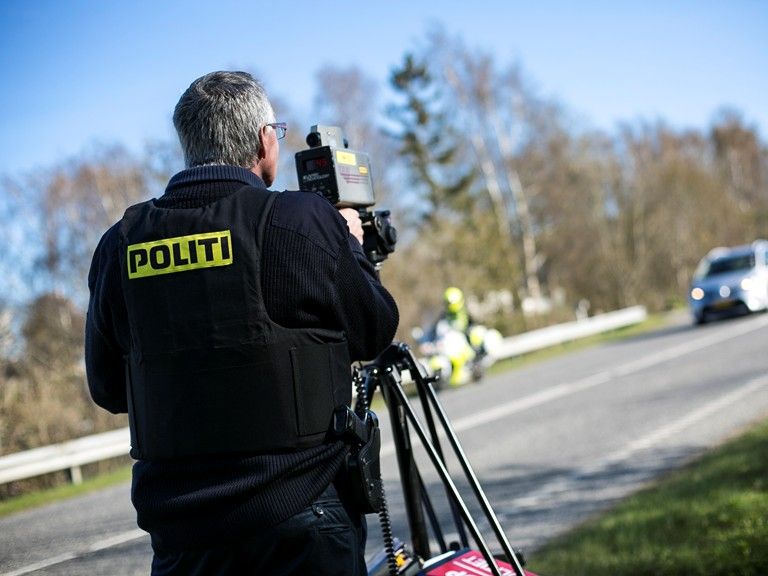Drivers in Denmark who like to push the pedal to the metal should probably be extra vigilant this week as the police have launched a nationwide speed control campaign this week.
The effort, which is part of a joint campaign held across Europe, will involve speed traps being rolled out across the country.
“Speed is the main culprit for about half of the fatal accidents on the roads, so it has an enormous impact on our safety when we are in traffic. It’s important to get more people to keep an eye on their speed and reduce it if they are driving too fast,” Mogens Kjærgaard Møller, the head of the safe traffic association, Rådet for Sikker Trafik.
As part of the campaign ‘Slow Down – before it’s too late’, 5,000 signs that encourage drivers to keep an eye on their speed have been erected.
READ MORE: Crimes in Denmark’s vulnerable neighbourhoods to be punished twice as hard
Preventative measure
New figures from Rigspolitiet state police showed that the police clipped the licences of over 62,000 drivers who exceeded the speed limit by over 30 percent.
In related news, a new report from the Rockwool Foundation has revealed that the police DNA registry is acting as a preventative measure for crime.
The study showed that criminals who have had their DNA taken by the police are less inclined to commit crime in the future – over the next three years they get 20 percent less convictions than those who don’t have their DNA taken.
The trend becomes even more obvious when looking at youth crime. The number of 18 to 23-year-olds convicted of a new crime within a year of the police taking their DNA is halved.
A law change in 2005 made it easier for the police to take DNA samples from those charged with a crime. It meant that about every second criminal had their DNA registered compared to every tenth before the new law came into effect.















